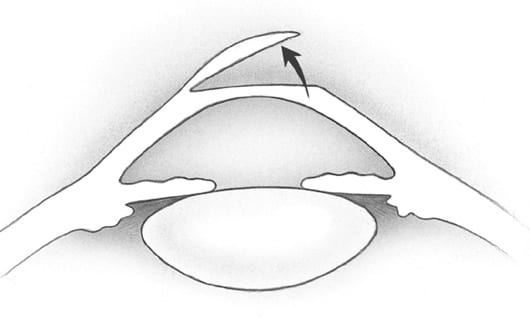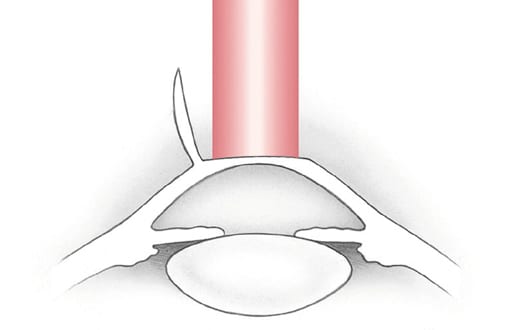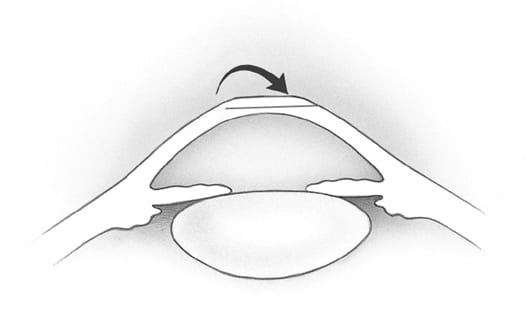LASIK Eye Surgery in Everett, WA
What is LASIK Eye Surgery?



LASIK eye surgery is a surgical procedure provided at Physicians Eye Clinic in Everett, WA that is intended to reduce a person’s dependency on glasses or contact lenses. LASIK stands for Laser-Assisted In Situ Keratomileusis and is a surgery that uses an excimer laser to permanently change the shape of the cornea, which is the clear covering of the front of the eye.
How is LASIK Performed?
In LASIK eye surgery, a knife, called a microkeratome, is used to cut a flap in the cornea. A hinge is left at one end of this flap. The flap is folded back to reveal the stroma, which is the middle section of the cornea. Pulses from a computer-controlled laser vaporize a portion of the stroma and then the flap is replaced. There are other techniques and many new terms related to LASIK eye surgery that you may hear about.
Who is a good candidate for LASIK?
While LASIK surgery is very popular, it’s not right for everyone. There are certain criteria a potential patient must meet to be eligible for LASIK with our team at Physicians Eye Clinic:
- Eye health — Conditions such as pink eye, dry eye syndrome, eye infections, or any eye injuries must resolve before you can have LASIK. Cataracts and glaucoma also usually prevent a candidate from qualifying for LASIK.
- Cornea thickness — LASIK improves vision by reshaping the front surface of the eye, the cornea. Your cornea needs to be thick enough to accommodate this reshaping.
- Prescription limits — LASIK results aren’t as predictable if the patient has a very high prescription, whether it be for nearsightedness, farsightedness, or astigmatism. Other vision correction surgeries may be better in these cases.
- Pupil size — Patients with overly large pupils can be at an increased risk for side effects such as halos, glare, and starbursts in low light.
- Age — Patients generally need to be at least 18, in some cases 21. This is mostly because vision continues to change in younger people.
- Stable vision for a year — This is related to the age issue. The patient’s vision needs to be at a stable prescription for at least a year prior to undergoing LASIK. The eyes need to settle into their prescription.
- Pregnancy — LASIK is not available to women who are pregnant or nursing. This is because hormonal changes during these times can alter the shape of the cornea.
- Overall health — Certain degenerative conditions and autoimmune diseases can preclude a person from having LASIK. This is due to the body’s decreased healing ability.
Is LASIK permanent?
During LASIK, your cornea is permanently reshaped to correct the refractive errors. This means your vision refractive errors are reduced dramatically or removed completely (and you have 20/20 vision). Your eyes can change, however, and could require a follow-up procedure if they do.
Also, presbyopia is a near-universal human eye condition that occurs when people turn 40. In presbyopia, the eye loses its ability to focus effectively on close up objects. Presbyopia occurs in the lens of the eye, not the cornea. LASIK doesn’t make presbyopia worse or make its onset sooner. Presbyopia, not declining results from your LASIK procedure, would be the reason you could need reading glasses after your 40th birthday.
How long is LASIK eye surgery recovery?
It’s amazing that LASIK surgery is done so quickly. Your recovery is equally fast.
After your surgery, we’ll examine your eyes. We’ll give you some prescription eye drops to prevent infection and inflammation and to keep your eyes moist. Then you can return home, but someone else needs to drive. It’s common for patients to have some slight itching or burning in their eyes. Your eyes will probably also tear more than usual for a few hours. These are normal signs of the healing process.
In most patients, vision is normal within eight hours and then continues to improve over time. In some cases, it can take several months to reach the full extent of your vision improvement. But in other patients, results are within a few weeks with a dramatic improvement in just hours.
What are the risks and side effects with LASIK?
LASIK is one of the most popular elective procedures around the world. To date over 30 million people have had LASIK performed. For perspective, that’s about equal to the entire population of Canada. Complications such as vision loss are very rare with LASIK, but there are certain side effects that are somewhat common, including dry eye and temporary vision issues.
Risks with LASIK:
- Dry eyes — LASIK surgery causes a temporary decrease in tear production. This can last for up to six months; eye drops can help manage this.
- Glare, halos, double vision — Your night vision could be affected after your surgery, with halos and glare showing around bright lights. Double vision can develop, as well. These usually last for a period from a few days to a few weeks.
- Undercorrection or overcorrection — If the laser removes too little or too much tissue, you may not have the correction you desire. This can be easily addressed with a second procedure for undercorrection.
- Astigmatism — If tissue removal is uneven, it can create astigmatism.
- Flap problems — The flap created to access the cornea can develop complications such as infection or unusual epithelium growth.
- Vision loss — In very rare cases, patients have experienced vision loss due to surgical complications.
Is LASIK painful?
Since this is eye surgery, patients often instinctively believe it must hurt. Not at all. There is no pain with LASIK surgery. When you arrive at our offices in Everett, we provide you with a sedative to help you relax. To start the procedure, you lie back in a reclining chair and we place numbing drops in your eye. Those keep you from feeling anything.
After your surgery, your eyes may itch, burn, or be watery. Your vision will be blurry. There is little, if any, pain afterwards, and your vision recovers very quickly.
Alternatives to LASIK Eye Surgery
Other alternatives to LASIK eye surgery and a life without glasses at our clinic in Everett, WA are PRK and Epi-Lasik. Dr. Jones or Dr. Lueth can tell you during your evaluation which one is the better choice for your eyes and will provide the best outcome.
Why Choose Physicians Eye Clinic for LASIK?
Doctors Thomas Jones and Brian Lueth have been performing LASIK eye surgery in Everett, Washington since 1999. Their mission is to offer the best patient-centered care possible. Our doctors will not only provide excellent routine eye and medical care, but will also be the ones performing your surgery.
What makes Physicians Eye Clinic in Everett, Washington the best place to have LASIK in the State of Washington? You meet the surgeon the day you come in for your evaluation. Our physicians complete your exam and can approve you the same day for LASIK eye surgery in our clinic in Everett, WA.
No other office provides you with such a complete array of services that they are able to care for you from start to finish. Make the drive from Bellingham, Washington or Seattle, WA to have the best quality LASIK eye surgery; it will be worth it! See what other patients are saying in our testimonials section.
PRK (Photorefractive Keratectomy) in Everett, WA
In 1995, PRK became the first FDA-approved laser procedure for refractive surgery. PRK utilizes an eximer laser to reshape the cornea. The procedure starts by removing the surface epithelium of the cornea.
How Does PRK Work?
The eximer laser uses a cool ultraviolet wavelength to vaporize the surface cornea to a specific shape. It can be used for nearsighted, farsighted and astigmatism corrections. The results are equivalent to LASIK eye surgery and, in cases where the cornea is too thin, PRK is the better choice.
After the eximer laser, a soft bandage contact lens is placed on the eye for comfort. Similar to LASIK eye surgery in Everett, WA, there is minimal discomfort during the procedure.
With PRK, there is a bit more discomfort while the epithelium re-grows over the cornea. This takes about one week, at which time the contact is removed. Your vision will continue to be somewhat blurred until the epithelium smoothes out.
Is PRK Safe?
PRK is a safe procedure since it, unlike LASIK in Everett, WA, does not involve using a microkeratome, or cutting laser, to create a flap. PRK does not have the risk of a dislocated corneal flap, which can occur with LASIK eye surgery.
EPI-LASIK in Everett, WA
Another form of surface laser is Epi-lasik. Epi-lasik is a technique that utilizes a plastic epithelial separator to remove the central epithelium in a continuous sheet.
This allows the epithelium to heal faster and with less discomfort than PRK. The same eximer laser that is used in LASIK eye surgery and PRK is used to sculpt the corneal surface. Like PRK, a bandage lens is used in Epi-Lasik to aid in the healing.
This will be removed after one week.
Is EPI-LASIK Safe?
Individual whose professions or hobbies put them at an increased risk of eye trauma will find Epi-lasik a safer choice than LASIK eye surgery.
Phakic IOLs in Everett, WA
For those patients who are not candidates for Lasik, PRK, or Epi-Lasik in Everett, WA, a phakic intraocular lens (IOL) may be another option. It is usually reserved for high myopic (nearsighted) patients with thin corneas.
Phakic IOL Procedure
The Verisyse phakic IOL is placed on top of the iris in a procedure that takes 15 to 30 minutes. The word “phakic” implies that you leave your natural lens intact in order to retain your ability to accommodate.
This IOL was approved by the FDA in 2004 and is intended for patients with myopia ranging from -5.00 to -20.00 diopters.
The Visian Implantable Collamer Lens (ICL) is placed behind the iris in front of the natural lens. It was approved by the FDA in 2005 and is intended for patients with myopia ranging from -3.00 to -15.00 diopters. Both the Verisyse and the Visian achieved excellent results in the FDA clinical studies.
Are Phakic IOLs Safe?
For either of these lenses, it is important to discuss with your surgeon whether or not this would be a safe alternative for you.
Schedule a Consultation For LASIK in Seattle, WA


